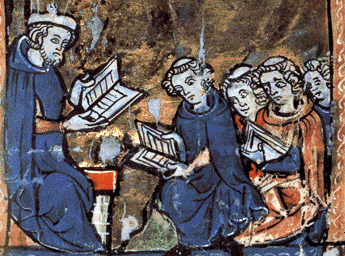Flokkr about Sveinn Úlfsson §
Edited by Kari Ellen Gade
þeim ‘for those’
hann (pron.; °gen. hans, dat. honum; f. hon, gen. hennar, acc. hana): he, she, it, they, them...
[3, 4] þeim þrimr bragningum ‘for those three lords’: Refers to Magnús inn góði Óláfsson, Haraldr harðráði Sigurðarson and Steinkell, king of the Svíar. For Steinkell (d. c. 1066), see also ÞjóðA Lv 9.
Closeþrimr ‘three’
[3, 4] þeim þrimr bragningum ‘for those three lords’: Refers to Magnús inn góði Óláfsson, Haraldr harðráði Sigurðarson and Steinkell, king of the Svíar. For Steinkell (d. c. 1066), see also ÞjóðA Lv 9.
Closebragningum ‘lords’
bragningr (noun m.; °; -ar): prince, ruler
[3, 4] þeim þrimr bragningum ‘for those three lords’: Refers to Magnús inn góði Óláfsson, Haraldr harðráði Sigurðarson and Steinkell, king of the Svíar. For Steinkell (d. c. 1066), see also ÞjóðA Lv 9.
Closehauld ‘of freeholders’
hǫlðr (noun m.; °-s; -ar): man < hǫlðvinr (noun m.)
[5] hauldvinr ‘the friend of freeholders [KING]’: The mss have hölld-vinr (so JÓ), ‘holldvinr’ (so 20dˣ) or ‘ho᷎llduinr’ (so 873ˣ); see ÍF 35, 134, 225-6 n. The form hauld- is Norw. (see ANG §105 Anm.). A hauldr (Icel. hǫlðr) was a yeoman or freeholder. See Note to Anon Nkt 15/2. The quality of the consonant cluster (ld not lð) is ensured by the internal rhyme. Skj B emends hǫldvinr to hǫlða vinr (hǫlða m. gen. pl.) and Skald has hǫlda vinr. These emendations are unnecessary from a metrical point of view.
Closevinr ‘the friend’
nom.
vinr (noun m.; °-ar, dat. -/(-i OsvReyk 92.17); -ir): friend < hǫlðvinr (noun m.)
[5] hauldvinr ‘the friend of freeholders [KING]’: The mss have hölld-vinr (so JÓ), ‘holldvinr’ (so 20dˣ) or ‘ho᷎llduinr’ (so 873ˣ); see ÍF 35, 134, 225-6 n. The form hauld- is Norw. (see ANG §105 Anm.). A hauldr (Icel. hǫlðr) was a yeoman or freeholder. See Note to Anon Nkt 15/2. The quality of the consonant cluster (ld not lð) is ensured by the internal rhyme. Skj B emends hǫldvinr to hǫlða vinr (hǫlða m. gen. pl.) and Skald has hǫlda vinr. These emendations are unnecessary from a metrical point of view.
Closehann ‘he’
hann (pron.; °gen. hans, dat. honum; f. hon, gen. hennar, acc. hana): he, she, it, they, them...
Closeógn ‘battle’
ógn (noun f.; °-ar; -ir): terror, battle < ógnsterkr (adj.)
[8] ógnstarkr ‘battle-strong’: -sterkr has been emended to -starkr to preserve internal rhyme.
Closestarkr ‘strong’
sterkr (adj.): strong < ógnsterkr (adj.)
[8] ógnstarkr ‘battle-strong’: -sterkr has been emended to -starkr to preserve internal rhyme.
CloseTeaching text: text section
Here you can see a piece of text. Clicking on words in the text will show you the dictionary headword, grammatical information and notes on how the word is used.
You should pay careful attention to the explanation of each word. You can test your knowledge using the translation and other exercises.
In some cases there may be audio of a modern Icelandic rendition of the text on this page.
